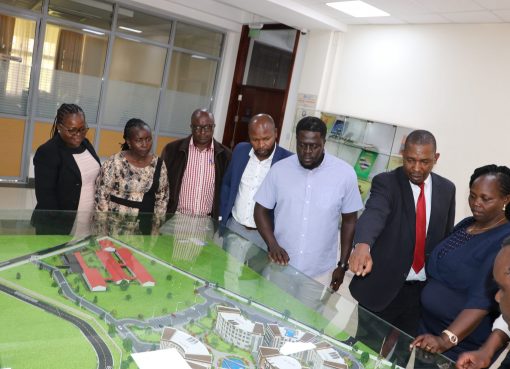Kenya needs to rethink food production practices in the wake of increased erratic climate patterns, depleted soil nutrients and a growing number of food insecure people.
Dr. David Amudavi, Executive Director, Biovision Africa Trust (BvAT) and Project Coordinator of the African Union-led Ecological Organic Agriculture Initiative (EOA-I) says that application of agro-ecological principles and practices will not only respond to climate change, declining biodiversity and poor soil quality but also strengthen farmers’ resilience and enhance food production.
Addressing the media during a virtual workshop, organized by the Route to Food Initiative (RTFI), Dr. Amudavi explained that effects of droughts, floods, irregular rain seasons continue to pose problems for farmers hence threatening food security in the country.
“Since agro-ecology is a scientific discipline, a farming practice and a social movement, it can build on farmers’ and consumers’ knowledge in establishing sustainable agricultural development. What is needed is appropriate anchoring policy, investment plans and programmes,” Dr. Amudavi added.
Layla Liebetrau, Project Lead of the Route to Food Initiative, an alliance of men and women working towards the realization of the human right to food in Kenya, said that there is now a growing concern to embrace forms of food production that are local-specific, affordable, sustainable and safe for peoples’ health and that of the environment.
“There is growing evidence of success in using agro-ecology as a holistic approach to farming. Currently, projects in the country following this approach have proven to increase farm productivity, enhance livelihoods for smallholder farmers and build strong local food systems,” she added.
Morris Kirimi, Director at Caritas Meru, emphasized on the need for formulating policy frameworks that mainstream agro-ecology.
“Policy advocacy for agro-ecology works effectively when it comprises collaborations between farmers, the national and county governments and the public,” he said adding that effective advocacy can help to generate public support for agro-ecology.
However, Kirimi reiterated that these initiatives need to be informed by successful agro-ecological practices and supported by research.
According to research, agro-ecology is the most viable approach to food security and attainment of the Right to Food for all.
In August, the Food and Agriculture Organization of the United Nations (FAO) and Biovision Foundation, with contributions from the Research Institute of Organic Agriculture (FiBL), published a study titled “The Potential of Agro-ecology to Build Climate-resilient Livelihoods and Food Systems” that focuses on sub-Saharan Africa.
The study shows that using agro-ecological methods increases the ability to adapt to climate change perturbations and contributes to climate protection.
The study which focused on Kenya and Senegal also shows in which direction food systems can be developed to be better equipped to deal with climate change effects and that there are opportunities to embed agroecological approaches into existing policies.
Statistics show 14.5 million Kenyans are food insecure. The number of acutely food-insecure people in need of emergency food assistance has also increased throughout 2019 from an estimated 1.1 million in February to 1.6 million in May and 2.6 million by July.
By Wangari Ndirangu




